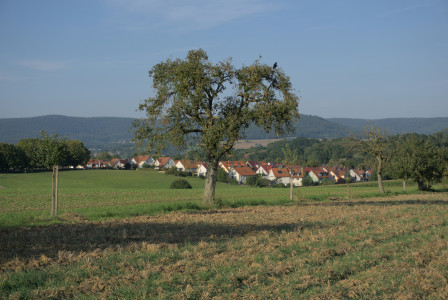Best practices
27 May 2025
Ark Armenia
Best practices
27 May 2025
Regenerative Green Transition
Urban and Rural Wellbeing
Proximity and social economy
+8 more
Login / create an account to be able to react
-
3

ARK Armenia is a non-governmental organisation founded in 2013 by Armen Kazaryan and Siranush Vardanyan in Kapan, Syunik Province. The organisation is dedicated to promoting sustainable development through ecotourism, permaculture, and community engagement in southern Armenia.
Topics
Armenia
International Organisations
Local Authorities
National authorities
NGOs / Non-profits
Regional Authorities
-
Thematic area
-
-
Regenerative Green Transition
-
Urban and Rural Wellbeing
-
-
Interlinkages with other sectors
-
-
Proximity and social economy
-
Tourism
-
-
Action areas and keywords
-
-
Circular Economy
-
Creating financial incentives and supportive regulation for green and circular social economy business models
-
Local Green Deals, green business communities and citizens’ initiatives
-
Reinforcing Business to Business collaboration for greener and circular value chains
-
Sustainable Finance
-
-
Ecosystem focus
-
-
Social economy
-
-
Scope of activity
-
-
International
-
Share
ARK Armenia is a pioneering non-governmental organisation based in Kapan, Syunik Province, dedicated to fostering sustainable development through ecotourism, permaculture, and community engagement. Established in 2013 by Armen Kazaryan and Siranush Vardanyan, ARK Armenia aims to transform Southern Armenia into a hub for ethical ecotourism, offering economic alternatives to traditional industries like mining.
IMPACT:
Environmental Impact
- ARK Armenia has established eco-camps in Kapan and Arajadzor, constructed using approximately 80% recycled materials sourced from local mining companies. These camps are designed following permaculture principles, promoting organic farming and sustainable living practices.
- The organisation has developed over 100 km of marked hiking trails, connecting significant cultural and natural sites, including routes from Tatev Monastery to Mount Khustup. These trails encourage eco-tourism and provide economic opportunities for local communities.
Community engagement
- ARK Armenia conducts workshops and training sessions on permaculture and sustainable agriculture, aiming to educate and involve local residents in environmental conservation efforts.
- In collaboration with the STRIVE project, ARK Armenia has supported displaced families in Kapan by providing agricultural knowledge tailored to new climate conditions and improving housing conditions with essential appliances.
Promotion of Ecotourism
- By attracting tourists to lesser-known areas like Kapan, ARK Armenia helps preserve the region's cultural heritage while providing economic benefits to local communities. The eco-camps serve as hubs for tourists interested in sustainable travel experiences.
Educational Programmes
- The organisation offers educational and rehabilitation programs at their eco-camps, fostering a deeper understanding of sustainable practices among visitors and locals alike.
Challenges
Geopolitical Instability
Operating in the Syunik Province, ARK Armenia is affected by regional tensions, particularly the aftermath of the Nagorno-Karabakh conflict. The influx of refugees and the potential for further territorial disputes pose risks to the stability necessary for tourism and community projects.
Infrastructure and Resource Limitations
The organisation relies on recycled materials and local resources for its eco-camps and projects. However, there is a lack of essential equipment for initiatives like the “ARK Holistica” project, which aims to provide rehabilitation services. The absence of adequate training apparatus blocks the effectiveness and scalability of such programs.
Economic and Bureaucratic Challenges
Despite Armenia's efforts to improve its business environment, challenges persist, including regulatory inefficiencies and limited market competition. .
Lessons learnt
Community Engagement is Crucial
By engaging residents in the construction of eco-camps and the development of hiking trails, ARK has fostered a sense of ownership and responsibility among locals, which is vital for the sustainability of such initiatives.
Leveraging Local Resources Enhances Sustainability
The organisation's use of recycled materials, particularly from local mining companies, for constructing eco-camps demonstrates how tapping into available resources can promote sustainability and reduce costs. This approach also highlights the potential for repurposing industrial by-products in eco-friendly ways.
Infrastructure Development Boosts Ecotourism
The establishment of over 100 km of marked hiking trails has not only made the region more accessible to tourists but has also stimulated the local economy. This infrastructure development serves as a model for how ecotourism can be harnessed to promote environmental conservation and economic growth simultaneously.
Adaptability to Local Conditions is Key
Operating in a region with limited infrastructure and resources, ARK Armenia has learned to adapt its strategies to local conditions. This adaptability has been crucial in overcoming challenges such as limited access to technology and the need for tailored community engagement approaches.
Comments (0)
See also
Cooperative Housing: A Community-Led Solution to Urban Challenges
- Categories
- Urban and Rural Wellbeing Proximity and social economy Construction +14 more
Abacus: Education and Culture as Drivers of Social Change
- Categories
- Partnerships Regenerative Green Transition Skills +30 more
Cities@Heart: Breathing New Life into European City Centres
- Categories
- Regenerative Green Transition Urban and Rural Wellbeing Proximity and social economy +15 more




